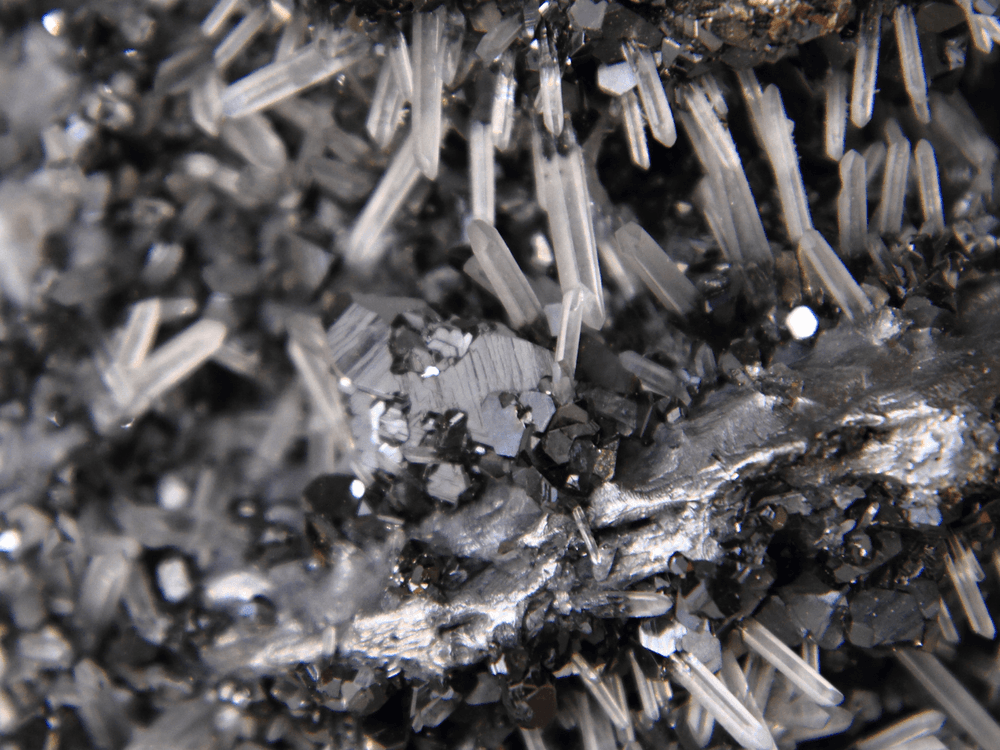Les métaux lourds sont omniprésents dans notre environnement. Leur absorption et leur
accumulation dans notre organisme peuvent avoir des conséquences néfastes sur notre santé. La détoxication (ou détoxification) des métaux lourds est un moyen pour favoriser leur élimination.
Dans cet article, nous explorerons les principaux métaux lourds présents de notre quotidien, leurs méfaits pour notre organisme, ainsi que des moyens pour s’en détoxifier.
Que sont les métaux lourds ?
Les métaux lourds sont des éléments métalliques ayant une densité élevée supérieure à 5g/cm³. Si on les retrouve naturellement dans l'environnement, ils tendent à s’accumuler dans l'air, l'eau et le sol en raison des activités humaines comme l'industrie, l'agriculture, ou encore l’utilisation de combustibles fossiles.
Les métaux lourds peuvent être classés en deux catégories :
- Les métaux essentiels, aussi appelés oligo-éléments, tels que le fer, le cuivre et le zinc : ils
sont non-toxiques à faibles doses et nécessaires à notre organisme. Cependant à des
concentrations élevées, ils peuvent devenir toxiques.
- Les métaux non essentiels, comme l’aluminium, le plomb, le mercure et le cadmium : ils
n'ont pas de rôle biologique indispensable au corps humain, et leur toxicité survient à des
concentrations relativement faibles.

Les principaux métaux lourds de notre environnement
L’accumulation des métaux lourds dans notre environnement résulte essentiellement de nos
activités industrielles. Ils sont le plus souvent disséminés dans les airs sous la forme de particules fines que nous inhalons ou ingérons par notre alimentation et l’eau que nous buvons.
Voici les principaux métaux lourds et leurs méfaits :
Arsenic : Il est utilisé en tannerie, dans le traitement des cuirs et des peaux, comme pigment dans certaines peintures, mais aussi dans certains pesticides, dans des cartouches d’armes. Il agit comme perturbateur endocrinien et possède des propriétés cancérigènes. Une intoxication à l’arsenic peut causer des troubles digestifs sévères (vomissements, diarrhées, douleurs abdominales), des convulsions et des accès de délire.
Cadmium : Produit par l’agriculture, on retrouve le cadmium dans les engrais et les boues
d’épandage. Il est aussi produit par nos activités de combustion (combustion des produits
pétroliers, du charbon, incinération des ordures ménagères, activités sidérurgiques), et est utilisé dans les cigarettes et les batteries. Toxique à de faibles doses, il favorise des problèmes squelettiques en interagissant avec le calcium (porosité osseuse, fractures), mais aussi pulmonaires et rénaux, et augmente le risque de cancer.
Mercure : Relargué dans l’eau par nos activités industrielles, on le trouve dans notre chaîne
alimentaire (poissons prédateurs, crustacés, coquillages). Il est également utilisé dans les
amalgames dentaires. Sous forme vapeur, il est toxique pour les voies respiratoires, tandis que sous forme dissoute, il favorise les troubles neurologiques, rénaux, et endocriniens.
Plomb : Présent dans les peintures anciennes, les canalisations en plomb et certains jouets, le plomb est susceptible d’entraîner des problèmes neurologiques et d’affecter le développement des enfants. Le saturnisme désigne l’intoxication au plomb. Dangereuse pour la santé, elle provoque des troubles réversibles (troubles digestifs, anémie), mais surtout des troubles irréversibles sur le système nerveux.
Les risques des métaux lourds pour notre santé
Ingestion, inhalation, contact cutané, notre exposition aux métaux lourds est quotidienne et
importante. Les méfaits des métaux lourds varient selon type de métal, la dose, de la durée
d'exposition, et de la sensibilité individuelle.
Globalement, les métaux lourds sont à l’origine de divers troubles pouvant entraîner de graves
problèmes de santé.

Le stress oxydatif : à l’origine d’un vieillissement prématuré.
Une inflammation chronique : à l’origine de maladies cardiovasculaires, d'arthrite et d'autres
problèmes de santé.
Des troubles du système nerveux : avec des troubles cognitifs, de la mémoire, ainsi que des changements de comportement.
Des perturbations hormonales : avec l’atteinte du système endocrinien, des dysfonctionnements hormonaux et des problèmes de fertilité.
Leur accumulation dans les organes : comme le foie, le cerveau et les reins, et avec, sur le long terme, le risque de dysfonctionnements importants.
Détoxication des métaux lourds, ou comment les éliminer ?
Si une intoxication aux métaux lourds nécessite une prise en charge médicale (via le processus de chélation où un agent chélateur fixe le métal indésirable et facilite ainsi son élimination), il est cependant possible de limiter au quotidien l’accumulation de métaux lourds dans l’organisme.
Voici quelques bonnes pratiques :
Éviter l'exposition : Il est possible de réduire notre exposition aux métaux lourds en arrêtant la cigarette, en privilégiant des ustensiles de cuisine en acier inoxydable, en choisissant des produits de soins personnels sans aluminium, ou encore en limitant la consommation d’aliments sources de métaux lourds (poissons, coquillages).
Une alimentation riche en antioxydants : les antioxydants sont intéressants pour neutraliser les radicaux libres engendrés par les métaux lourds. Privilégier des fruits et légumes riches en antioxydants et de préférence issus de culture bio et sans pesticides sources de métaux lourds.
La supplémentation en aliments détoxifiants : parmi eux, nous pouvons citer la chlorelle, la
spiruline, l’ail, le chou kale, les épinards ou encore le curcuma et le gingembre. Ces aliments sont capables de capter les traces de métaux lourds dans notre organisme et favoriser leur élimination via le processus de détoxification du foie.
Hydratation : boire suffisamment d'eau favorise l'élimination des toxines, y compris les métaux lourds, par le biais de l'urine.

Globalement, avec le foie, notre organisme possède un moyen efficace pour assurer au quotidien sa détoxication des métaux lourds. Il est possible de soutenir davantage notre foie et tout notre organisme en adoptant des habitudes de vie saines avec des changements dans notre alimentation, la consommation de composés détoxifiants, et la réduction de notre exposition environnementale.
En cas d’intoxication massive aux métaux lourds, il est en revanche impératif de consulter
urgemment un médecin.

